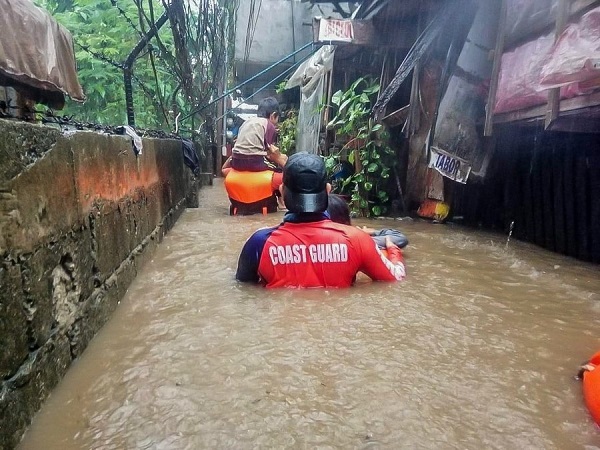Manila, (Asian independent) Super typhoon Noru slammed Luzon island in the Philippines with heavy rainfall and winds, leaving five people dead, as it blew away from the Southeast Asian country on Monday.
Noru is the 11th and the most powerful cyclone to enter the Philippines this year, reports Xinhua news agency.
Bulacan province Governor Daniel Fernando said Monday morning that a flash flood washed away five rescuers who were conducting rescue operations in San Miguel town, north of Manila.
Some parts of the town are still under muddy water.
The state weather agency downgraded Noru to a typhoon hours after its landfall late Sunday afternoon.
The bureau said Noru maintained its strength on Monday morning, moving west northward at 30 km per hour, packing 140 km per hour winds and gusts of up to 170 km per hour.
On Monday, President Ferdinand Marcos conducted an aerial inspection of three provinces north of Manila hit by the cyclone.
He is also expected to visit Quezon province, where Noru made landfall on Sunday afternoon, to check on the damage.
“I think we may have gotten lucky, at least this time… I think it’s clear from what we did these last two days is that, very, very important, is preparation,” he was quoted as saying to reporters.
“It’s not yet over. I think the point when we can stand down is when the majority of evacuees are already back in their homes,” the President added.
As precautionary measure, over 74,000 people had been evacuated from the typhoon’s path and warnings of “serious flooding” were also issued for areas in capital Manila.
Flights and ferry services were cancelled, while government offices and schools were also asked to remain closed.
The Philippines is one of the most disaster-prone countries globally, mainly due to its location in the Pacific Ring of Fire and Pacific typhoon belt.
On average, the archipelagic country experiences 20 typhoons yearly, some of which are intense and destructive.
In December 2021, some 400 people died when typhoon Rai hit the country, with rescue teams describing scenes of “complete carnage”.
In 2013, typhoon Haiyan, one of the most powerful tropical storms ever recorded, killed some 6,300 people.








